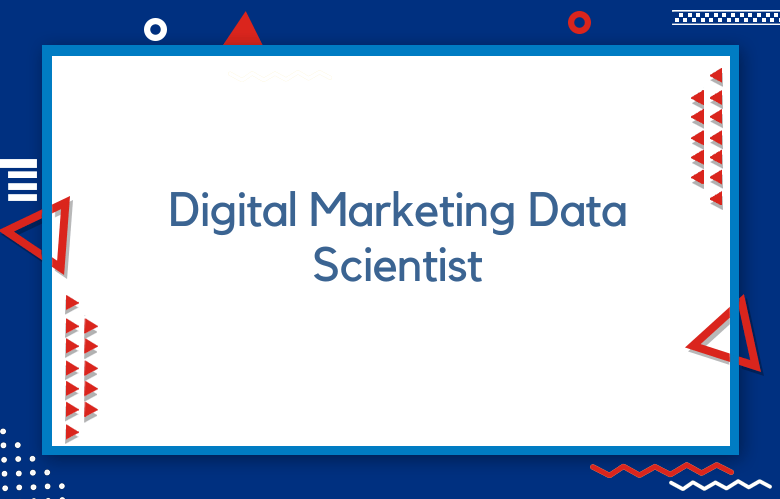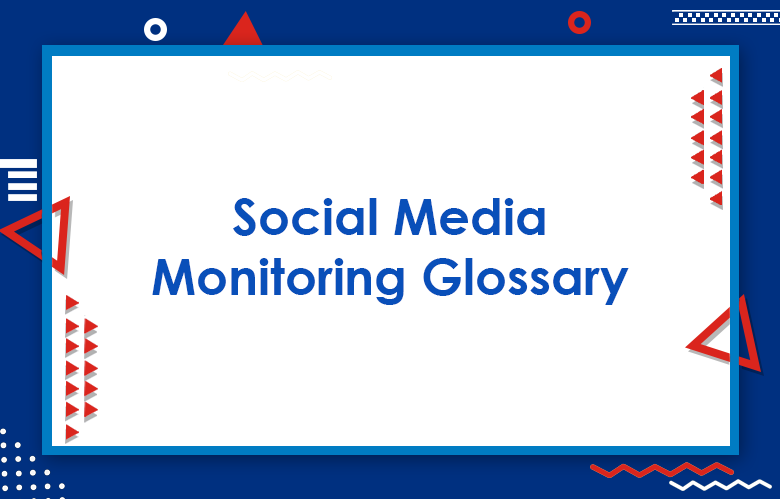The Challenges of Being a Digital Marketing Data Scientist

As a digital marketing data scientist, I often get asked how I combine my love of numbers with my creativity. It’s true that as a data scientist, I need to have both left- and right-brain skills to be successful. I might use data to create marketing plans, build models to identify customer segments or develop recommendations for new products on any given day.
But even with all the tools at my disposal, some challenges still come with the territory. In this blog post, I’ll share the three biggest challenges I face as a digital marketing data scientist.
The Challenges of Being a Digital Marketing Data Scientist
Managing Expectations
One of the tough challenges I face is managing expectations. Clients or stakeholders often come to me with an idea for a project or campaign, and they’ll have unrealistic expectations about what data can do. For example, they might want me to find a way to target potential customers who live in a particular area and make $X per year.
On the surface, that doesn’t seem like an unreasonable request. However, when I start digging into the data, I might realize insufficient information to target those individuals accurately. In cases like this, it’s essential to have a conversation with the client or stakeholder so that they understand the limitations of the data and manage their expectations accordingly.
Dealing with Dirty Data
Another big challenge is dealing with dirty data. By dirty data, I mean inaccurate, irrelevant, or incomplete data. This is a common problem in the marketing world because there are many different data sources (e.g., website clicks, call center logs, customer surveys), and keeping track of it can be challenging.
As a result, it’s not uncommon for me to receive a dataset that is missing critical information or contains errors. This can make it difficult to trust my analysis’s results and make it more challenging to formulate actionable recommendations. When confronted with dirty data, I try and clean it up as much as possible before proceeding with my analysis.
Applying Analysis to Improve Results
The final challenge I wanted to share is applying analytics to improve results. Often, marketing teams will look at me as someone who produces reports or provides insights based on historical data. However, my goal is always to use my marketing and data scientist skills to help improve results going forward.
For example, let’s say that I’m working on a campaign optimization project, and I’ve identified some areas where the current campaign could be improved. In addition to providing those insights, I’ll work with the team to formulate hypotheses about changing the drive to perform better in those areas. We’ll then test those changes and analyze the results to confirm or refute our ideas and continue iterating until we’ve achieved our desired outcome.
Lack of Data Quality
One of the biggest challenges digital marketing data scientists face is the lack of data quality. This can be due to many aspects, including incorrect or outdated data, incomplete data sets, and inaccurate data collected in the first place. To combat this, digital marketing data scientists need to be able to clean and manipulate data sets.
Inaccurate Data
Another challenge faced by digital marketing data scientists is inaccurate data. This can be caused by many aspects, such as incorrect assumptions made about the target audience, changes in customer behavior that haven’t been accounted for, or even changes in the algorithms used by search engines.
As a result, it’s essential for digital marketing data scientists to continuously monitor customer behavior and make adjustments to their models accordingly. They must also understand how search engine algorithms work to ensure their models are accurate.
Too Much Data
While having too much data may seem reasonable at first glance, it can be one of the most complex challenges digital marketing data scientists face. Sifting through large data sets can be time-consuming and tedious, and identifying relevant information is often challenging. As a result, digital marketing data scientists need to be able to quickly identify patterns and trends to make efficient use of the data they have. They also need strong analytical skills to make sense of extensive data sets rapidly.
Access to Data
One of the tough challenges you’ll face as a digital marketing data scientist is access to data. Without data, you can’t do your job. But often, getting the information you need can be difficult. You might have to work with multiple teams to get the data you need, or you might use public datasets, which might not be ideal. Either way, getting the information you need to do your job effectively can be challenging.
Cleaning and Preparing Data
Once you have access to the data you need, the next challenge is cleaning and preparing it for analysis. This can be time-consuming, but getting accurate results from your comments is essential. Dirty data can lead to inaccurate conclusions, so cleaning and preparing your data before proceeding with any investigation is necessary.
Staying Up-To-Date with Changes in Technology
The field of digital marketing is transforming, which means that as a digital marketing data scientist, you must stay up-to-date with the latest technological changes. Whether it’s new platforms, new methods of data collection, or new ways of analyzing data, you need to be on top of all the latest changes to succeed in this field. This can be a challenge, but it’s also one thing that makes this job so exciting.
Dealing with Ambiguous Goals
Another challenge you might face as a digital marketing data scientist is dealing with ambiguous goals. Often, clients or managers only have a general idea of what they want from an analysis without concrete plans or objectives.
Too Much Data, Not Enough Time
One of the biggest challenges digital marketing data scientists face is the sheer volume of data they have to deal with. With so many different channels and platforms to track, it can be challenging to know where to begin. This is where prioritization and time management skills come in handy. Focusing on the most important tasks is essential without getting bogged down in the details.
Lack of Standardization
Another challenge digital marketing data scientists face is the lack of standardization across platforms and channels. With so many tracking systems and methods, comparing data from one platform to another cannot be easy.
Dealing with incorrect or incomplete data
It’s not always easy to work with, even with complete and accurate data. Incorrect or incomplete data can lead to inaccurate conclusions and faulty recommendations. This is why it’s so important for digital marketing data scientists to have strong analytical and problem-solving skills. They need to be able to identify errors and correct them so that they can draw accurate conclusions from the data.
Sifting Through Large Amounts of Data
One of the biggest challenges faced by digital marketing data scientists is having to sift through massive amounts of data to find the gems that will be most valuable to their company.
Making Sense of Complex Data Sets
Another challenge digital marketing data scientists face is making sense of complex data sets. Often, the data that businesses have collected is incomplete or inaccurate. As a result, it cannot be easy to glean valuable insights from it.
Applying Insights in a Way that Drives Results
Even if digital marketing data scientists can collect and analyze data effectively, they still need to be able to apply those insights in a way that drives results. This can be challenging because it requires thinking creatively and developing innovative solutions to help a business achieve its goals.
Data overload is one of the biggest challenges digital marketing data scientists face. Knowing where to start cannot be accessible with so much data available. This often leads to paralysis by analysis, which can be damaging to both your productivity and your results.
Just because something is included in a report isn’t accurate or helpful. As a digital marketing data scientist, it’s your job to sift through all the data and find the gems that will help you improve your results.
Understanding the data
As a digital marketing data scientist, one of the challenges you will face is understanding the data. There is a lot of data out there, and it cannot be simple to know where to start. You will need strong analytical skills to make sense of the data and find the insights that will help your company succeed.
Cleaning the data
Another challenge you will face is cleaning the data. Data can be messy, and it is often full of errors. As a data scientist, it will be your job to clean the data and ensure it is accurate. This can be time-consuming, but providing your analysis is correct is essential.
Finding the right tools
Another challenge you will face is finding the right tools. There are several tools, and it is hard to find the best. You will need to experiment with other agencies.
Dealing with missing data
A common issue you will encounter as a digital marketing data scientist is missing data. This can occur for various reasons, such as when people do not complete surveys or companies do not have total records. Dealing with missing data can be difficult, but finding ways to fill in the gaps is essential so that your analysis is as accurate as possible.
Handling large datasets
Another challenge you may encounter is dealing with large datasets. As a digital marketing data scientist, you will often work with thousands of rows of long datasets. This cannot be easy to manage, but there are some tools and techniques that you can use to make it easier.
Concluding the data
Once you have collected and cleaned the data, another challenge you will face is concluding it. This cannot be easy, as there is often much information. You must implement analytical skills to interpret the data and find insights to help your company succeed.
The volume of data is overwhelming.
The daily volume of data generated can overwhelm an experienced data scientist. IBM says that 2.5 quintillion bytes of data are generated daily, which is only expected. With so much data being developed, it can be challenging to identify which data sets are relevant and which can be disregarded.
Data is spread out across multiple platforms.
Digital marketing data is often spread across multiple platforms, making it difficult to get a holistic view. For example, a customer may interact with a brand on social media, search for information on Google, and then purchase on the company website. While each interaction provides valuable insights, it can be challenging to piece together the complete picture.
Data sources are constantly changing.
Another challenge digital marketing data scientists face is that data sources constantly change. For example, a company may switch from one social media platform to another or introduce new products requiring different data types. Data scientists must continually adapt their methods to keep up with the latest changes.
Data quality is often poor.
Another common challenge digital marketing data scientists face is poor-quality data. This can be due to many aspects, such as incorrect or incomplete information being entered into databases or errors in tracking systems. Poor quality data can make obtaining accurate insights and sound decisions challenging.
There is a lack of standardization.
Another challenge digital marketing data scientists face is the lack of standardization across platforms and systems. This means there is no “right” way to collect or analyze data, making comparing results across different studies more difficult. Additionally, it can be challenging to replicate findings if there is no standardization in place.
The ever-changing landscape of digital marketing
Data scientists in digital marketing must constantly look for new trends and changes in the landscape. With new technologies, knowing the latest changes and ensuring that your data is accurate and up-to-date can be challenging.
Massive data needs to be analyzed.
As a data scientist in digital marketing, you must analyze large amounts of data. This can be challenging, as you must have strong analytical and problem-solving skills to make sense of the data and draw meaningful insights from it.
The need to be able to work with cross-functional teams
As a data scientist in digital marketing, you must work effectively with teams from other departments, such as creative, product, and engineering. This can be challenging, as you must communicate effectively with people from different backgrounds and understand their needs to work together effectively.
The pressure to deliver results quickly
In digital marketing, there is often a lot of pressure to deliver results quickly. As a data scientist, this can be a challenge, as you must ensure that the data you are analyzing is accurate and that your insights are actionable.
The need for accurate data
Data scientists need accurate data to make informed decisions about digital marketing campaigns. However, it can be challenging to obtain accurate data due to the internet and how people use it. This can lead to problems when trying to measure the success of a campaign or make predictions about future trends.
The difficulty of measuring ROI
Another challenge facing data scientists in digital marketing is measuring a campaign’s return on investment (ROI). Due to the complex and ever-changing nature of the internet, it can be challenging to track all of the necessary data points to calculate an accurate ROI. This can make it difficult to justify the cost of a campaign to clients or upper management.
The need for strong analytical skills
Data scientists in digital marketing must have strong analytical skills to be successful. They must understand and interpret large amounts of data to find patterns and trends. Additionally, they must be able to use statistical techniques to conclude their data.
The need for creative thinking
In addition to strong analytical skills, data scientists in digital marketing must also be creative thinkers. They must develop new and innovative ways to use data to solve problems and create opportunities for their clients.
Conclusion
Being a digital marketing data scientist comes with its fair share of challenges, but it’s also a beneficial role.
Managing expectations, dealing with dirty data, and applying analysis to improve results is essential. Still, if you’re up for the challenge, you’ll find no shortage of opportunities. Thanks for reading!
As digital marketing data scientists, we often face challenges requiring out-of-the-box thinking and creative solutions.
Contact us for a consultation if you are facing a digital marketing data analysis challenge.
Our expert team can help you get a solution that fits your needs.
Call: +91 9848321284
Email: [email protected]



